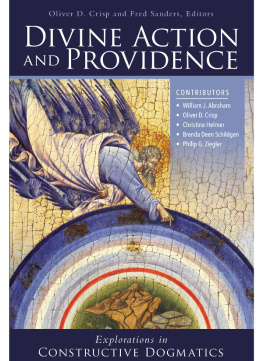Can a woman forget her infant, so as not to have pity on the son of her womb? and if she should forget, yet will not I forget thee.
The Will of God Made and Governs All Things
Treating of the Will of God St. Thomas, following St. Augustine, teaches that it is the cause of all that exists.
Hence it is the Will of God which from nothingness drew out the universe with all its grandeur and all that lives in it, the earth with all that is on it and beneath it, all creatures visible and invisible, living and inanimate, reasonable and without reason, from the highest to the lowest.
If God then has produced all these things, as St. Paul says, according to the purpose of his will,
But the works of God are perfect, it is written in the Canticle of Moses.
1. God Controls All Events, Whether Good or Bad
Nothing happens in the the universe without God willing and allowing it. This statement must be taken absolutely of everything with the exception of sin. Nothing occurs by chance in the whole course of our lives is the unanimous teaching of the Fathers and Doctors of the Church, and God intervenes everywhere.
I am the Lord, He tells us Himself by the mouth of the prophet Isaias, and there is none else. I form light and create darkness; I make peace and create evil, I, the Lord, do all these things. And so on in numerous other passages of Scripture.
Perhaps you will say that while this is true of certain necessary effects, like sickness, death, cold and heat, and other accidents due to natural causes which have no liberty of action, the same cannot be said in the case of things that result from the free will of man. For if, you will object, someone slanders me, robs me, strikes me, persecutes me, how can I attribute his conduct to the will of God who, far from wishing me to be treated in such a manner, expressly forbids it? So the blame, you will conclude, can only be laid on the will of man, on his ignorance or malice. This is the defense behind which we try to shelter from God and excuse our lack of courage and submission.
It is quite useless for us to try and take advantage of this way of reasoning as an excuse for not surrendering to Providence. God Himself has refuted it and we must believe on His word that in events of this kind as in all others, nothing occurs except by His order and permission.
Let us see what the Scriptures say.
He wishes to punish the murder and adultery committed by David and He expresses Himself as follows by the mouth of the prophet Nathan: Why therefore hast thou despised the word of the Lord, to do evil in my sight? Thou hast killed Urias the Hittite with the sword, and hast taken his wife to be thy wife, and hast slain him with the sword of the children of Ammon. Therefore the sword shall never depart from thy house, because thou hast despised me, and hast taken the wife of Urias the Hittite to be thy wife. Thus saith the Lord: Behold, I will raise up evil against thee out of thy own house, and I will take thy wives before thy eyes and give them to thy neighbor and he shall lie with thy wives in the sight of this sun. For thou didst it secretly, but I will do this thing in the sight of all Israel, and in the sight of the sun.
Later when the Jews by their iniquities had grievously offended Him and provoked His wrath, He says: The Assyrian is the rod and the staff of my anger, and my indignation is in his hands, I will send him to the deceitful nation, and I will give him charge against the people of my wrath, to take away the spoils, and to lay hold on the prey, and to tread them down like the mire of the streets.
Could God more openly declare Himself to be responsible for the evils that Absalom caused his father and the King of Assyria the Jews? It would be easy to find other instances but these are enough. Let us conclude then with St. Augustine: All that happens to us in this world against our will (whether due to men or to other causes) happens to us only by the will of God, by the disposal of Providence, by His orders and under His guidance; and if from the frailty of our understanding we cannot grasp the reason for some event, let us attribute it to divine Providence, show Him respect by accepting it from His hand, believe firmly that He does not send it [to] us without cause.
Replying to the murmurs and complaints of the Jews who attributed their captivity and sufferings to misfortune and causes other than the will of God, the prophet Jeremias says to them: Who is he that hath commanded a thing to be done, when the Lord commandeth it not? Do not both evil and good proceed out of the mouth of the Highest? Why doth a living man murmur, a man suffering for his sins? Let us search our ways, and seek, and return to the Lord. Let us lift up our hearts with our hands to the Lord in the heavens, saying, We have done wickedly and provoked thee to wrath; therefore thou art inexorable.
Are not these words clear enough? We should take them to heart for our own good. Let us be careful to attribute everything to the will of God and believe that all is guided by His paternal hand.
How Can God Will or Allow Evil?
However, you will perhaps now say, there is sinfulness in all these actions. How then can God will them and take part in them if He is all-holy and can have nothing in common with sin?
God indeed is not and cannot be the author of sin. But it must be remembered that in every sin there are two parts to be distinguished, one natural and the other moral. Thus, in the action of the man you think you have a grievance against there is, for example, the movement of the arm that strikes you or the tongue that offends you, and the movement of the will that turns aside from right reason and the law of God. The physical action of the arm or the tongue, like all natural things, is quite good in itself and there is nothing to prevent its being produced with and by Gods cooperation. What is evil, what God could not cooperate with, is the sinful intention which the will of man contributes to the act.



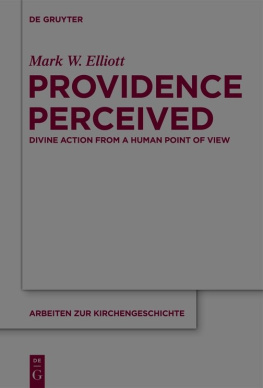
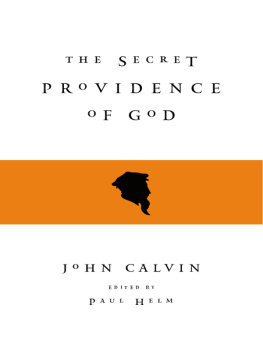

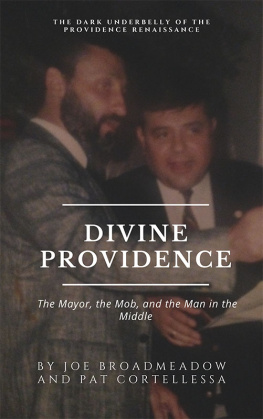
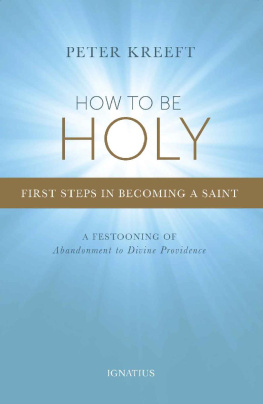

![St. Jean-Marie Baptiste Vianney - The Little Catechism of the Cure of Ars (with Supplemental Reading: Confession: Its Fruitful Practice) [Illustrated]](/uploads/posts/book/270052/thumbs/st-jean-marie-baptiste-vianney-the-little.jpg)
